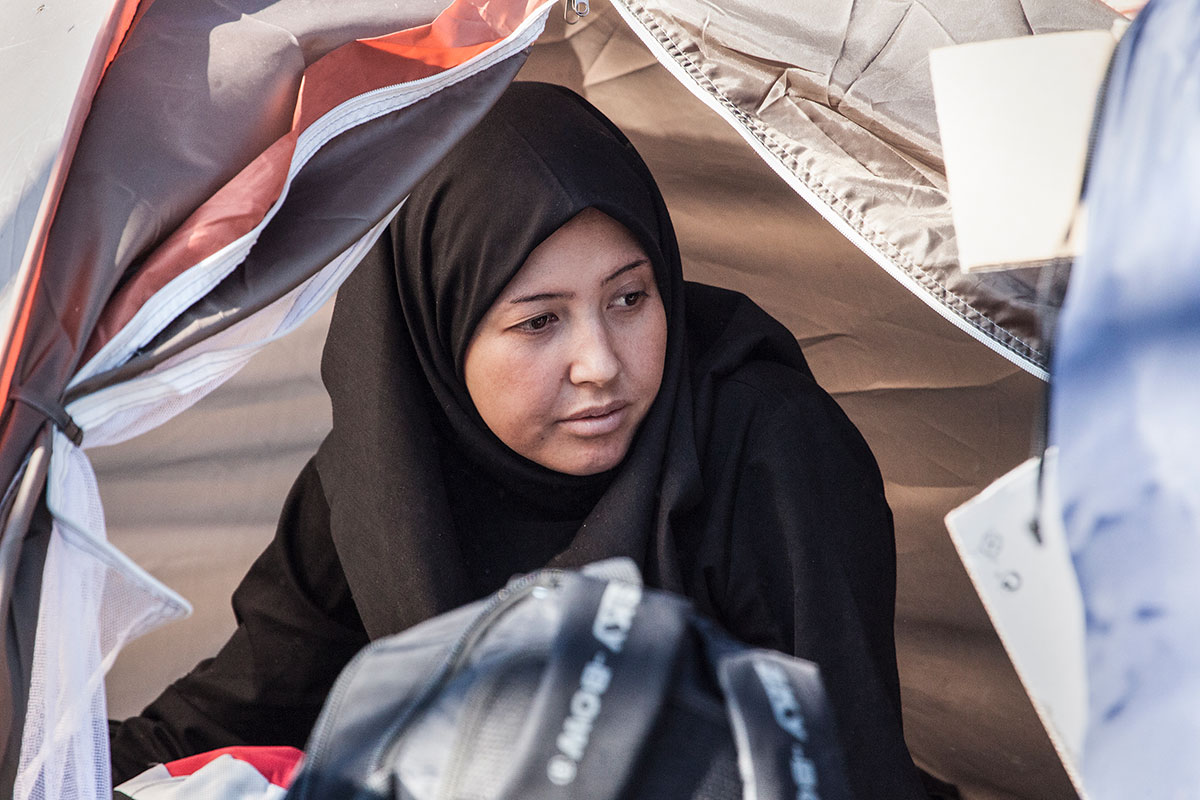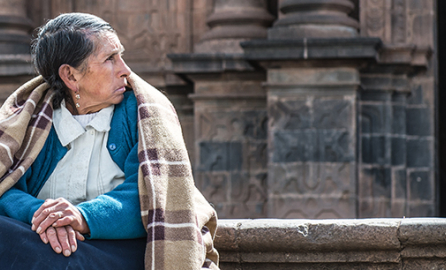Violence against women takes myriad forms, including domestic, sexual, gender-based, legal, economic and political.
Capacity4dev spoke to two women’s organisations in Peru and Spain about their approaches to combating the issue and furthering women’s rights.
peru: sexual violence
One in three women in Peru are likely to suffer physical and/or sexual violence from an intimate partner in their lifetime, according to the UN.

One in three women in Peru are likely to suffer physical and/or sexual violence from an intimate partner in their lifetime. Photo © Marlon del Aguila Guerrero/CIFOR
In Cusco, in the southern part of the country, more than 60% of women reported physical violence by a partner at some point in their life, according to the World Health Organisation.
The discussion around gender-based violence has become more prominent in recent years, with a mass demonstration in 2018 bringing thousands of people to streets of Lima, Peru’s capital. But social norms have made progress difficult.
“The authorities do not want to recognise domestic violence”, said Victoria Villanueva, Director of the Lima-based Movimiento Manuela Ramos (Manuela Ramos Movement). “Neither do the political authorities nor the churches, nor other sectors.”
As a result, she added, domestic femicide – or the intentional killing of women for being women – has become a legal reality.
Changing the narrative
The Manuelas (as they call themselves) have been working for over 40 years to change attitudes towards women on several fronts.
One fight is for sexual and reproductive rights, including the right to abortion. According to Villanueva, there is still a lack of wide social respect for women’s rights, so the Manueals have been working with other national organisations to give women the right to choose.
Political dialogue has become another important element of their work – across all levels, including the police, the judiciary and the congress.
Villanueva on the importance of changing state institutions: (in Spanish, with English subtitles):
“Women’s rights are not gifts,” Villanueva said. “They are rights and the State has to recognise that.”
In the justice system, she added, it’s not about having more rules, but about ensuring women have access to justice, and that men found guilty of violence are punished.
In the economic sphere, she continued, if women have more economic clout they will have more power to demand their rights.
“We consider that a woman can be autonomous,” she said. “We think no one, neither men nor women should live without work”.
A further challenge is democracy and public policy, as attitudes will only change when women enter politics, Villanueva said, adding that “the personal is political, [and] politics is part of everyday life”.
Awareness about existing rights plays a role, too. Villanueva said that Peruvian women must be made aware that they have a legal right to participate in elections and exercise political power.
Villanueva on how women must get involved in politics to change the system: (in Spanish, with English subtitles):
Villanueva has also called for much broader public debate about how women are treated, and for more public censure of domestic violence.
She believes that the growth of social networks has helped raise awareness about female violence, encouraging women across the world to discuss it openly.
spain: women and migration
Spain has been an entry-point for migrants from Africa for many years, but recent years have seen an increase in border harassment and intimidation, particularly towards women.
Helena Maleno Garzón from Caminando Fronteras (Frontline Defenders), a group that supports female migrants, has told Capacity4dev, “migratory movements are becoming ‘feminised’ at both the quantitative and qualitative levels”, meaning there are more female migrants, and women suffer specific forms of violation.

Women refugees must not be seen as victims, said Helena Maleno Garzón. Photo © Steve Evans/Flickr
While women endure sexual violence during the migration passage itself, and then sexual intimidation at the border, Garzón insisted they must not be seen as victims, or pitied, but treated with dignity for the way they have had to negotiate the system.
“We want to transform the way these women are regarded,” she said. “They are not invisible; they are not victims, nor criminals, they have rights, and these should be respected.”
Giving a voice
Caminando Fronteras works to create spaces where these women are encouraged to speak and devise their own strategies to improve their position.
The organisation adopts “a perspective of participatory action research… where the communities that have those problems sit down and discuss the formulas to resolve them,” said Garzón. The organisation’s role is then to publicise what these women have decided.
Enabling female migrants to come up with their own strategies has forced members of Caminando Fronteras to confront their own prejudices.
“As well as paying money for the migratory process itself, women have to pay with their bodies,” said Garzón. “In Europe, we’re often horrified, but the women tell us this is a strategy for survival.”
Helena Maleno Garzón on feminism and migration: (in Spanish, with English subtitles):
Garzón believes that migrant women have a more “rationalised feminism”, as they decide that surviving is more important than a women’s right not to be sexually assaulted.
She described European feminists’ refusal to accept strategies that women from other parts of the world adopt to survive as “white feminism… as colonial feminism”, insisting that the challenge is to “create a different feminism that all women build together.”
common threads
While the work of these two organisations is very different, there are common themes: both stress the importance of creating a space for women to discuss what they want, and the importance of getting the message out. Here social media has opened new pathways.
A second shared approach is to ensure that the women they support choose for themselves what they want. Whether it is migrant women deciding on a “rational feminism” or encouraging young women to claim their rights, these women’s choices must be respected.
This article was written by Daphne Davies. Photo credit Shawn Harquail/Flickr




Log in with your EU Login account to post or comment on the platform.